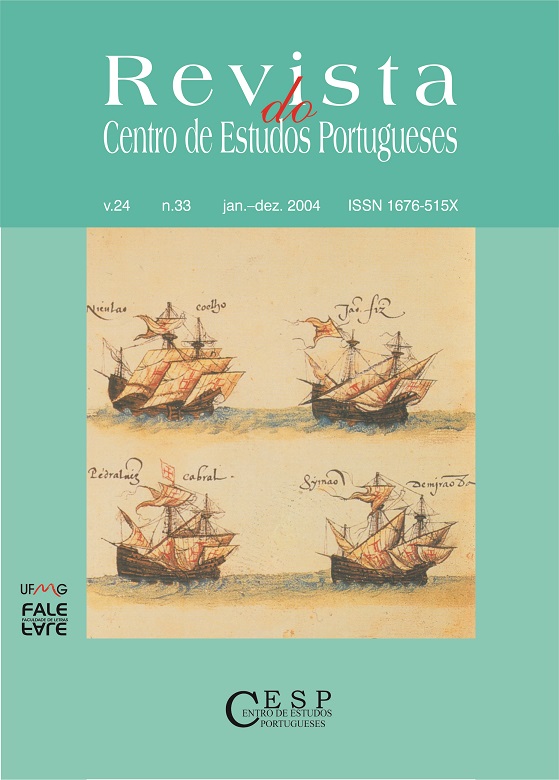A jangada de pedra: uma mensagem político-ideológica
DOI:
https://doi.org/10.17851/2359-0076.24.33.55-67Resumo
Este estudo do romance A jangada de pedra de José Saramago parte do motivo da viagem como movimento transformador das situações e dos indivíduos. A interpretação da viagem empreendida pela península Ibérica, transformada em jangada na ficção de Saramago, privilegia a busca de um sentido pela escolha do caminho marítimo e o questionamento quanto aos motivos que teriam levado a península a romper os laços geográficos com a Europa. O trajeto pelo oceano simboliza a viagem existencial dos indivíduos e da nação portuguesa que procura firmar-se, em uma parte do planeta, no qual, possa determinar as próprias diretrizes, independente do jugo econômico imposto pelas macro-potências. A jangada de pedra, imaginada por Saramago, transporta os portugueses, que partem em busca de autonomia política, econômica e social, através do mar “novamente desconhecido”.
This study has of the José de Saramago´s book The Stone Raft (A jangada de pedra) begins by exploring the reason of the trip as a transforming movement of the situations and the individuals. The interpretation of the trip as the Iberian peninsula, transformed into a raft in the Saramago fiction, privileges the search for sense in the choice of the maritime way and it questions the reasons which would have led the peninsula to break the geographic ties with Europe. Its way through the sea symbolises the existential trip of the individuals and of the Portuguese nation which is trying to become significant somewhere within the planet, where it may determine its own laws, independent from economical demands from the great nations. The stone raft that was imagined by Saramago, transports the Portuguese that leave their nation in search for political, economical and social autonomy, throughout the sea that is “once again unknown”.










